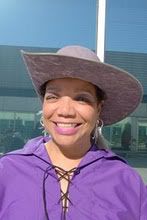 About the Author: Award-winning author Hank Quense lives in Bergenfield, NJ with his wife Pat. They have two daughters and five grandchildren. He writes humorous fantasy and scifi stories. On occasion, he also writes an article on fiction writing or book marketing but says that writing nonfiction is like work while writing fiction is fun. A member of the Science Fiction Writers of America, he refuses to write serious genre fiction saying there is enough of that on the front page of any daily newspaper and on the evening TV news. Altogether, Hank has over forty published short stories and a number of non-fiction articles.
About the Author: Award-winning author Hank Quense lives in Bergenfield, NJ with his wife Pat. They have two daughters and five grandchildren. He writes humorous fantasy and scifi stories. On occasion, he also writes an article on fiction writing or book marketing but says that writing nonfiction is like work while writing fiction is fun. A member of the Science Fiction Writers of America, he refuses to write serious genre fiction saying there is enough of that on the front page of any daily newspaper and on the evening TV news. Altogether, Hank has over forty published short stories and a number of non-fiction articles.Hank’s previous works include Tales From Gundarland, a collection of fantasy stories. Readers Favorite awarded the book a medal and EPIC designated it a finalist in its 2011 competition. His Fool’s Gold is a retelling of the ancient Rhinegold myth and Tunnel Vision is a collection of twenty previously published short stories.
Follow/Contact Hank here:
Hank’s website: http://hanquense.com
Hank’s Blog:strangeworldsonline.blogspot.com
Strange Worlds website:http://strangeworldsonline.com
Follow him on twitter: http://twitter.com/hanque99
Facebook fan pages: http://www.facebook.com/pages/Hank-Quenses-Fiction-Writing-Page/102293491907?v=wall
Blog Note: Previous interview provided in full by Hank Quense.
Zaftan Miscreants: Book 2 of the Zaftan Trilogy
Book Summary: The Zaftans and the folks from Gundarland are at it again. This time, the encounter is in deep space and two powerful fleets of warships face off. While the fleets challenge each other, a pair females struggle to survive. Sam is a new type of android with an organic brain. She is perplexed by her unexpected ability to experience emotions. Her primary one is loneliness caused by the officers she is supposed to work with. They treat her with contempt. Klatze, a young and beautiful zaftan officer (see portrait in her dress uniform) blessed with talent and ability -- unheard of in the zaftan navy -- comes to the attention of the fleet's commodore, Gongeblazn. He lusts after her and her continuous refusals to have sex angers the commodore and his lust turns to thoughts of vengeance. Sam and Klatze each face unique situations that test their mettle and their desire to survive in the midst of chaos.
What's different about this book? Why should people buy it?
Zaftan Miscreants offers a wealth of unusual characters. The four main characters are an android, a ship's computer, a beautiful alien who is a societal misfit and another alien who is a well-adjusted murderer. If that isn't enough, one minor character is an ancient robot who is a religious fanatic and is the one who paves the way for the appearance of the Mechanical Messiah. I'd say that defines 'different'.
Does the book have a reader's guide to help book clubs discuss the novel?
Yes, it does. The guide is designed to help reading groups delve deeply into the philosophical issues addressed by my book and characters. Here are two questions from the guide.
1) Is Klatze suffering from delusions of grandeur because she thinks that she has "ability". Does she need intensive indoctrination in the arts of assassination and treachery to get her to fit in with normal zaftan society?
2) The author seems to have an unhealthy fixation on the repulsive aliens. Is this an indication of a mental disorder? Can it be caused by an incident in his childhood? How would Freud diagnose the problem? What would he recommend to alleviate the situation?
Does this book pick up where Book 1 left off?
No. Book 1 sets up the initial contact between the two worlds and leaves both with the felling that it is only a matter of time before there is a war. Book 2 starts 300 years later and continues the mistrust that permeates relations between the two worlds.
Zaftan Entrepreneurs: Book 1 of the Zaftan Trilogy was filled with humor and satire. Does it continue in Book 2?
Even if I wanted to, I can't write stories any other way. So yes, Zaftan Miscreants is filled with humor and satire.
Where can we get a copy?
I'm glad you asked that. I have a complete list of sellers on my website: http://strangeworldsonline.com/ZM-main.html











